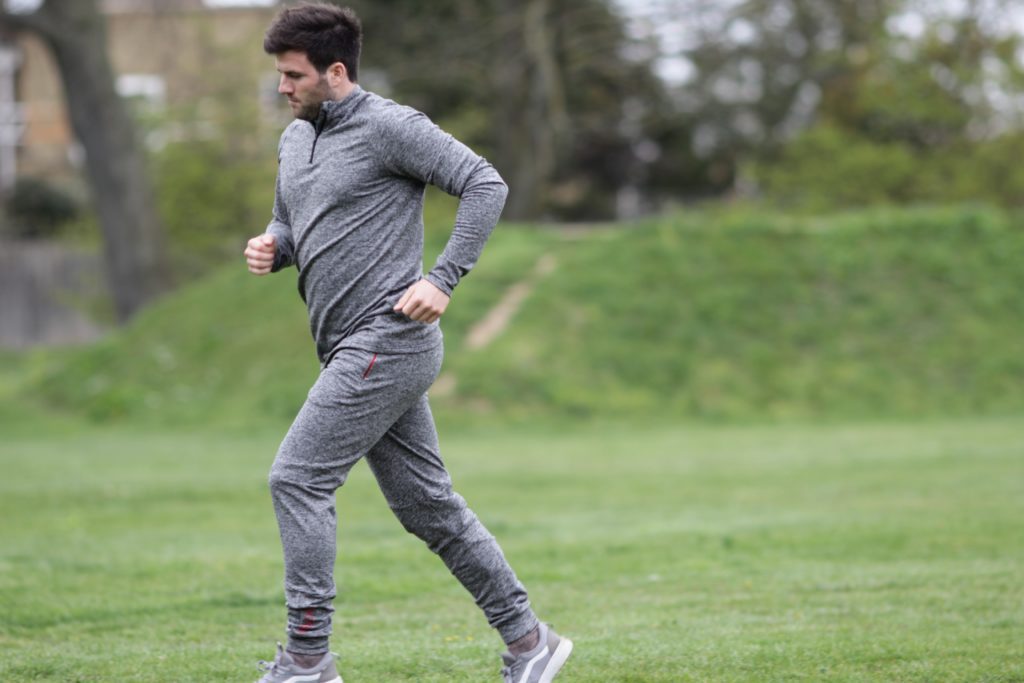by Gaurav Dubey (MS Biotechnology)
In the United States, the opioid epidemic has grown into a full-blown public health crisis with massive socioeconomic implications. The state of Indiana is no exception, “as the percentage of hospital treatment episodes in Indiana for opioid use has more than doubled since 2000; in 2013, Indiana’s rate of overdose fatalities, 14.4 per 100,000 citizens, ranked 17th nationally (Indiana ranks 16th for population).”1 One Indiana native and veteran social worker is giving back to her community, trying to quell the flames of the epidemic in her hometown by serving as the clinical director for Evolve Indy, a new Indianapolis-based treatment center for drug and alcohol addiction.

Who Is Whitney Brown, Evolve Indy’s New Clinical Director?
Mrs. Whitney Brown is a licensed clinical social worker in her 17th year of individual practice. Initially receiving a bachelor’s of science in psychology from Indiana State University in Terre Haute, then her Masters of Social Work from Indiana University, she shifted into working with community mental health and is currently in her sixth year as a licensed social worker in the private sphere. With significant experience in program development, she has served as the clinical director at various community mental health centers over the past 8 years. She has substantial experience with spearheading this project in Indiana and is eager to help make a difference for the people in Indiana, her home state.
What Is Evolve Indy?
Evolve Indy is an outpatient addiction treatment center for drug and alcohol addiction based in Indianapolis, Indiana. They offer various levels of care, spanning from residential PHP (partial hospitalization program) options to comprehensive IOP (intensive outpatient program) options for patients. Currently, the medical team at Evolve Indy does not currently offer medical detox. Patients are referred to partnering and outside medical detox facilities for a safe and comfortable detox experience prior to beginning at Evolve Indy. The ideal medical detox from opiates generally utilizes short-term (3-4 days, generally) buprenorphine treatment to comfortably transition patients from full-acting opioid agonists (e.g. heroin, oxycodone, Vicodin) to being fully sober and detoxed. From here, patients have the choice to continue treatment with Vivitrol maintenance (extended-release naltrexone injection; to learn more about the Vivitrol injection, click here). To learn more about how you or a loved one suffering from addiction can get help today, visit us at EvolveIndy.com to schedule your free consultation today.
Stepwise Order of Care & Operations
Patients at Evolve Indy first usually check into a medical detox so they can be medically supervised and withdrawal can be managed carefully. As mentioned, EvolveIndy doesn’t have a medical detox unit at their facility now. However, patients needing medical detox are referred to partnering facilities for supervised medical detox. After patients are successfully detoxed, they are able to move into residential housing and begin the Partial Hospitalization Program (PHP). After successfully completing PHP, they are eligible to move onto Intensive Outpatient Program (IOP).

For more information about medical detox and help with drug/alcohol abuse, you can visit us at EvolveIndy.com
Evolve Indy’s New Residential PHP Treatment Option For Addicts
Of the various treatment programs offered at Evolve Indy, Mrs. Brown is especially excited about their novel partial hospitalization program, which includes brand new residential housing, featuring a 16-bed home for men and a separate 16-bed home for women. This is an extensive program where a patient would typically live in the home for 30 days, surrounded by the support and structure to facilitate a sober lifestyle. Vivitrol is generally encouraged to help facilitate treatment for those in recovery from Opioid Use Disorder (OUD), and while the program can last three to six months, depending, the focus is on safely transitioning the individual back into the community. Each patient is provided with a case manager, who acts as a liaison to the outside world, helping with housing, insurance, and the legal necessities associated with treatment. Additionally, all patients have both a recovery coach and access to a therapist, along with the programming within the center, which meets five days a week, for 4-5 hours each day.
Evolve Indy’s New IOP Addiction Treatment Option
For those who are looking for a less-extensive treatment option and a less comprehensive level of care, a second choice is available in the intensive outpatient program (IOP). The IOP treatment offers a valuable option to those who are struggling with addiction, with the choice to meet either in the morning or evening, with meetings held three days a week, typically for 3 hours each day. This includes both individual therapy and group sessions, with a licensed physician on-site to handle medications (not yet available).
Other Features of Evolve Indy’s New Indianapolis Treatment Facility
It should be noted that many facilities and halfway houses within Indiana are dilapidated, and are located in problematic areas of the state. It is therefore incredibly important to Evolve Indy to offer patients a safe, comfortable place for recovery. While the women’s grounds are still in stages of production, Mrs. Whitney has personally toured the men’s housing facility—featuring a 5,000+ square foot home, an inground pool in the backyard, all in a quaint, rural setting. The home is located in an isolated area of Avon, Indiana; an older, well-established neighborhood. Fitness and proper nutrition are the mainstays of the program, as well, so good coffee, juices, and an overall sense of personal responsibility and respect for one’s body is an aspect of treatment, as well. Accordingly, Evolve Indy’s program is about accountability and trust; if needed, daily drug testing will ensure that patients are indeed following the program’s guidelines. There is a zero-tolerance policy for illicit drug and alcohol use, and both urinalysis and mouth swab tests will potentially be administered to make sure that the conditions of the program are successfully being met.
Evolve Indy expects accountability from their patients; reciprocally, patients can hold Evolve Indy accountable, as well. With the first priority being to one’s health, Evolve Indy’s exceptional patient care is focused on rehabilitation and recovery, and providing the necessary resources to get there.
What to Expect from Life in an Addiction Recovery Home at Evolve Indy
With that said, it is important that those who choose Evolve Indy are serious about recovery. Residents will be monitored while on the grounds, and transportation will be provided, as patients who choose to live onsite won’t have access to a vehicle. If they are working, the necessary arrangements will be made to get them there and back, and the home will be staffed by a recovery coach that will live there, as well.
Currently, only private insurance is accepted, focusing on those who receive work-based insurance, or those still on a parent’s plan. Insurance will likely pay for all therapy and treatment, although the housing will need to be met out-of-pocket.

Expanding Beyond Traditional Talk Therapy to Include Mind/Body Balance
Evolve Indy is staffed with experienced individuals who have helped other agencies, as well. With past involvement in centers located in Florida and Indiana, they know the necessary requirements of the industry, and the necessities that help make treatment successful. With an emphasis on daily structure and routine and the psychology behind addiction, the team at Evolve Indy is committed to helping individuals in recovery. Mrs. Whitney knows this is challenging work, but she also knows that behind every addiction is some level of trauma, and by working with both in a safe, healthy environment, healing is possible. If you or a loved one suffers from addiction, reach out to us at EvolveIndy.com to learn how we can help!
Works Cited
1. Ray, B., Quinet, K., Dickinson, T., Watson, D. P. & Ballew, A. Examining Fatal Opioid Overdoses in Marion County, Indiana. J. Urban Health Bull. N. Y. Acad. Med. 94, 301–310 (2017).

